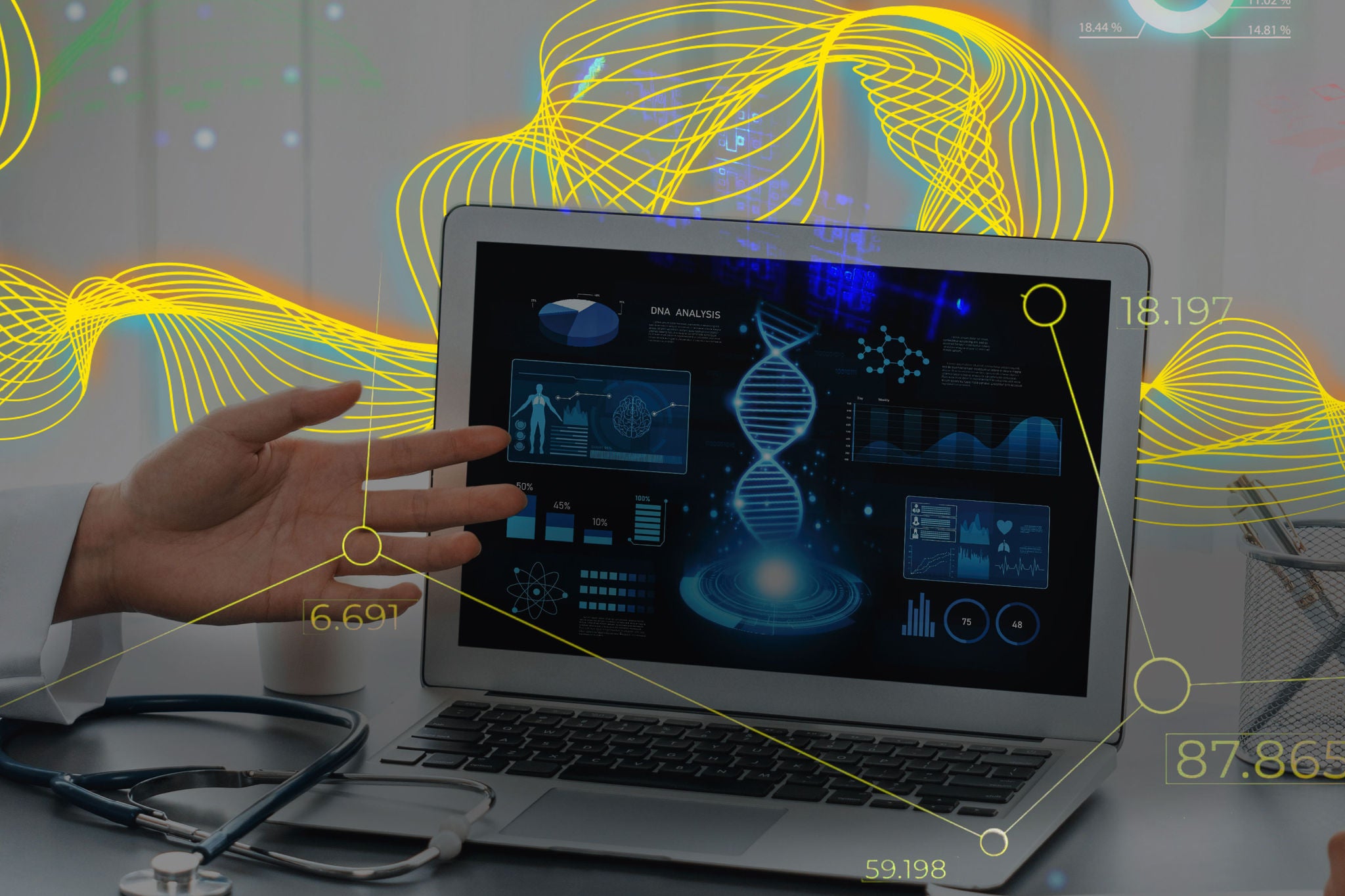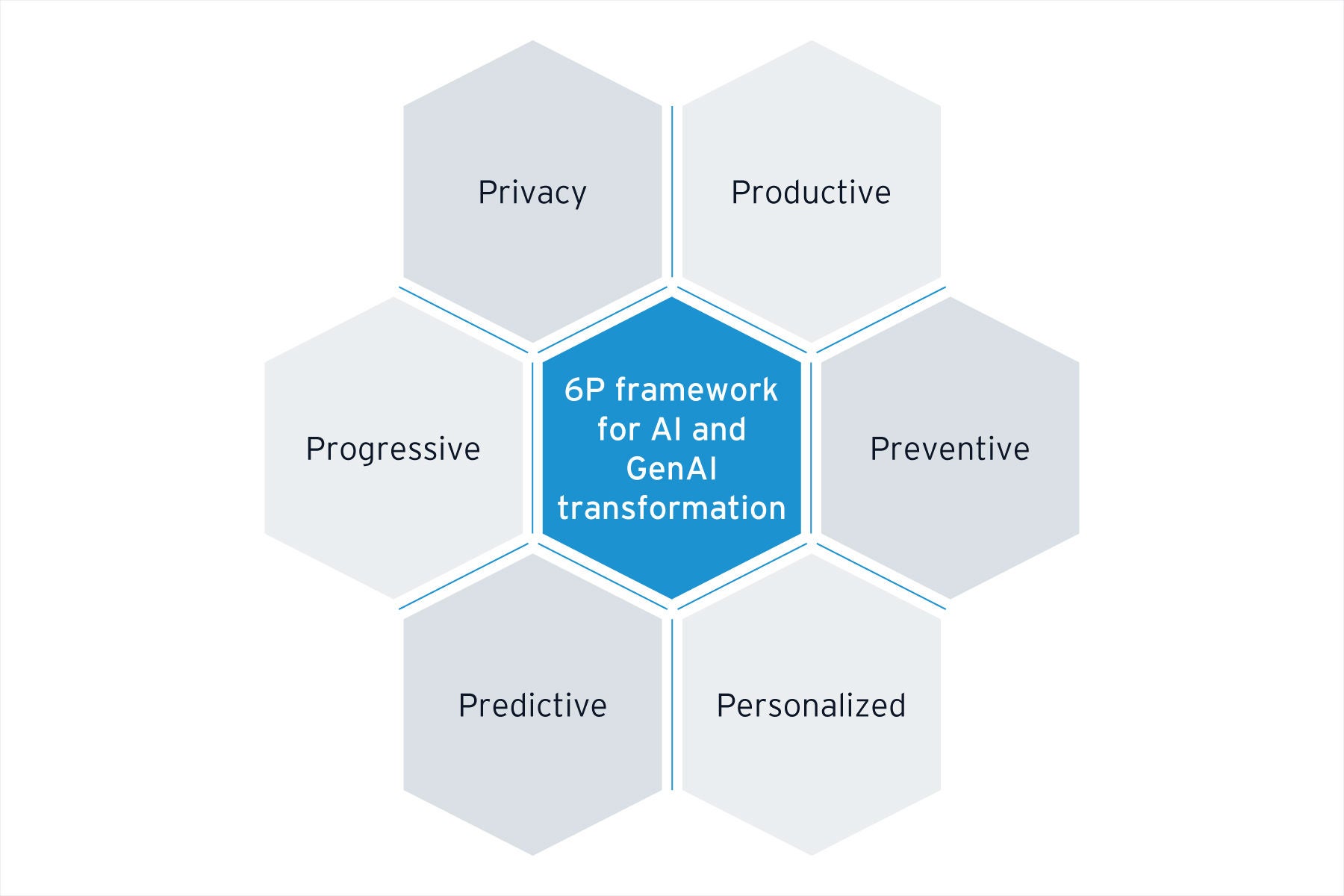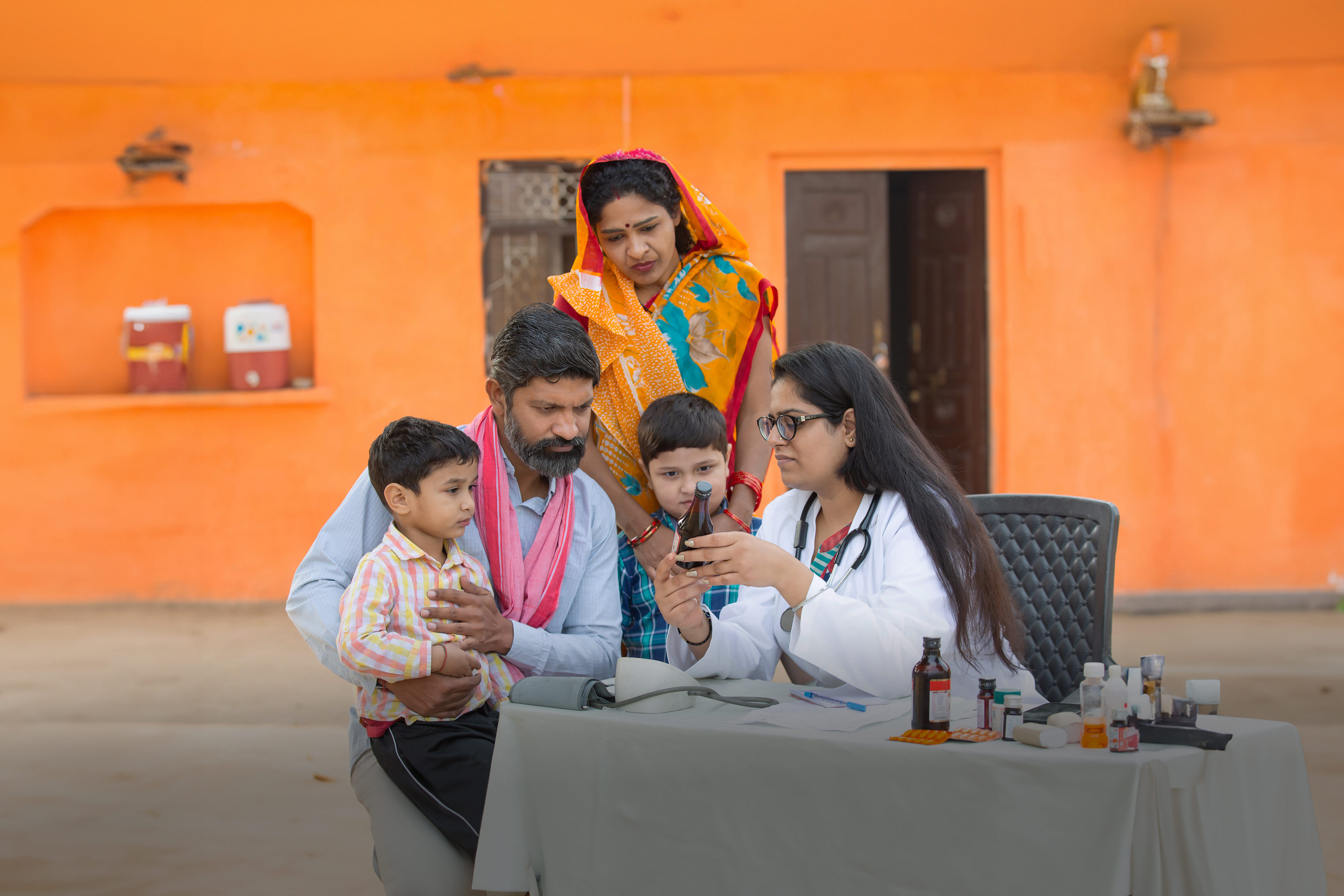With its ability to generate insights from existing datasets, GenAI healthcare use cases span from predictive analytics to drug discovery, leading to more informed decision-making and improved patient outcomes. The benefits of GenAI in healthcare are evident as it paves the way for personalized medicine, tailoring treatment plans to individual patient needs.
Revolutionizing Indian healthcare with GenAI
In India, the healthcare sector has been cautious in adopting digital technology. However, GenAI could potentially reduce the demand-supply imbalance caused by an acute shortage of clinical and non-clinical talent. According to an EY report, “The AIdea of India: Generative AI's potential to accelerate India's digital transformation,” GenAI applications in health and life sciences could contribute an incremental US$64 billion to India’s GDP by 2030, underscoring the far-reaching potential of GenAI in reshaping the industry.
The integration of GenAI into the Indian healthcare system represents a ground-breaking shift. This latest report has explored various dimensions of GenAI application, addressing both its potential and the complexities involved in its adoption.
1. Addressing workforce and infrastructure shortages:
GenAI helps tackle critical shortages in healthcare by automating administrative tasks and enhancing diagnostics. It supports both clinical areas, like health data management and treatment planning, and non-clinical areas, such as finance and IT, allowing healthcare professionals to focus on improving organizational efficiency.
2. Improving health outcomes and trust:
Generative AI excels at processing diverse data to create tailored patient treatment plans, simulate clinical trials and develop training materials. These capabilities can significantly boost long-term clinical outcomes and enhance patient trust in healthcare systems.
3. Leveraging ABDM for a digital health ecosystem:
The Ayushman Bharat Digital Mission (ABDM) offers a strong digital foundation to integrate GenAI into healthcare. ABDM’s infrastructure supports effective data management and interoperability, enhancing GenAI’s impact on coordinated and patient-centric care.
4. Collaborative approach for holistic development:
successful AI implementation in healthcare requires collaboration among all stakeholders. This approach should focus on knowledge sharing, innovation and making AI benefits accessible and equitable.
The report further highlights that the role of GenAI in hospitals is looking promising, with over 60% of CIOs eager to introduce GenAI in the next six to 12 months, following the 25% who have already begun. GenAI technologies are key enablers in mitigating workforce and infrastructure shortages, offering tools from administrative task automation to advanced diagnostic support. This amplifies the capabilities of healthcare professionals and optimizes existing infrastructure.
The 6P framework for transformation







